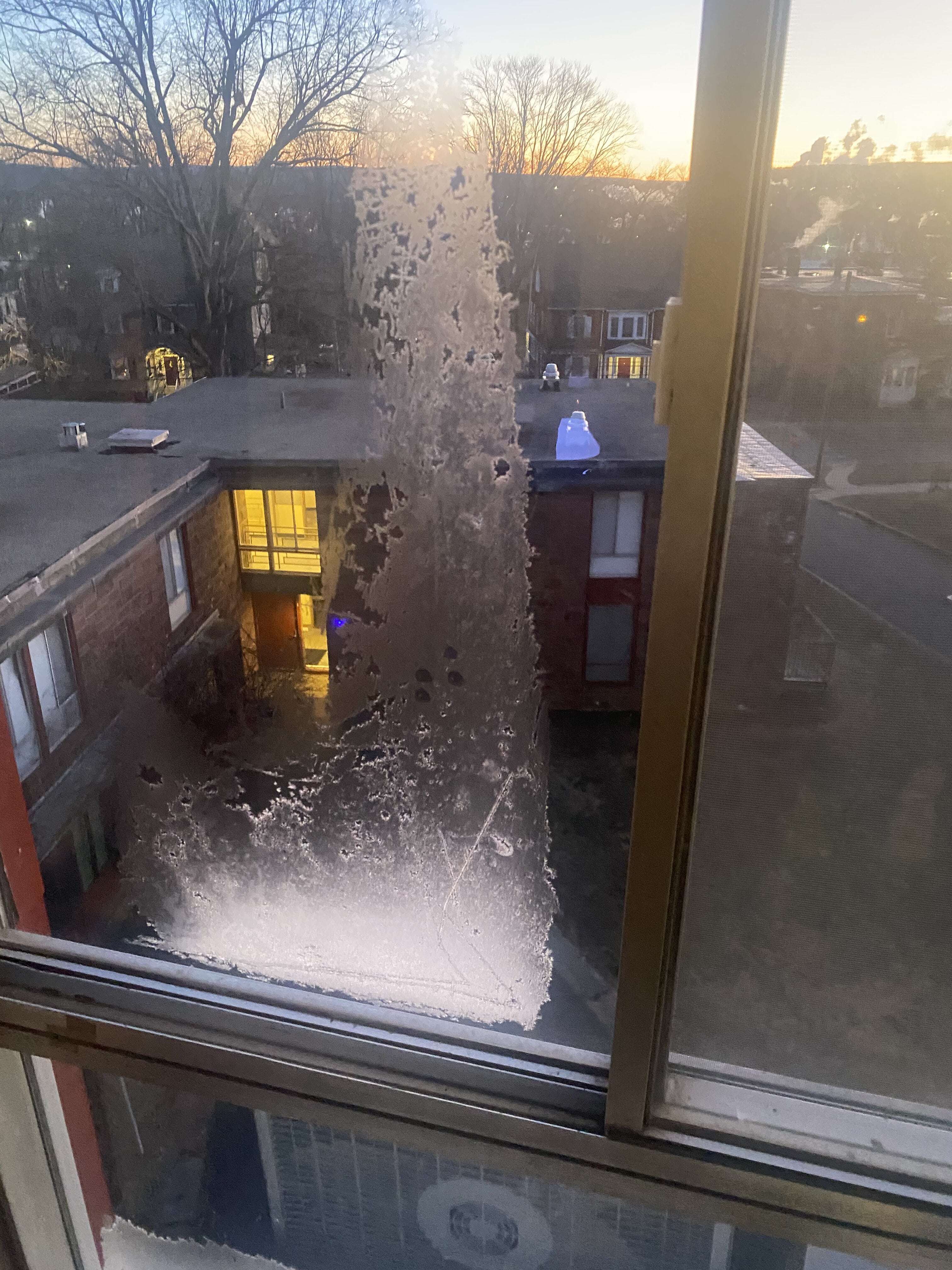
c/o Sulan Bailey, Head Features Editor
Over the weekend, a cold arctic breeze covered the Northeast, creating dangerous conditions across Connecticut. Brutal winds accompanied the frigid temperatures, which dropped five degrees Fahrenheit below zero during the night. Unaware about the impending arrival of critically low temperatures, many students were surprised by the freezing cold. The Argus spoke to students about their experiences navigating these extreme circumstances.
“I didn’t know it was gonna get this cold,” Reed Schwartz ’24 said. “I was taken entirely by surprise. I ran to the gym in my full coat and my shorts because I didn’t have any long pants. I first noticed [the temperature change] when I walked into my roommate’s room on Friday morning and just did not feel comfortable in there [because it was so cold].”
Other students noted that their rooms got significantly colder as well. This issue was especially prevalent in the High/Low Rise apartment complex, where several students reported that the heating in their rooms did not work.
“My room had no heating, so it was really, really, really cold,” Nika Marohnic ’24, a Low Rise resident, said. “I couldn’t sleep there at night. I went to someone else’s Low Rise and slept in their room for the night.”
Because of the centralized heating system, multiple program houses had trouble with their radiators. Geo Wood ’25, who lives in Music/Full House, also experienced difficulties with heat at home.
“My room was really cold,” Wood said. “I think that was something that was surprising to me because it’s always so warm there because of the heat. I would get ready an extra 10 minutes earlier so I could put on long underwear to bundle up.”
The weather created unexpected challenges in dorms too, leading to burst pipes. This forced students to evacuate the Butterfields only a week after the previous flooding on the premises.
“I know some kids [whose] rooms got flooded, but mine didn’t,” Petra Leite ’25, who lives in the Butterfields, said. “My room was really cold though, and they did tell us to keep all of our windows shut so that the pipes wouldn’t burst again.”
For some students, especially those not from the East Coast, these were the coldest temperatures that they had ever experienced.
“I had checked the weather [beforehand], but since I’m from L.A., I don’t really know what that feels like,” Wood said. “So I was like, ‘Oh, it’ll be cold.’ But when I walked outside, it was so much colder than I could have ever imagined.”
Students made significant adjustments to their weekend plans and daily routines, staying indoors whenever possible and sometimes using cars to travel walkable distances.
“I went out to a concert in New Haven on Friday, which was quite the Herculean effort,” Mack Katkavich ’25 said. “Usually on a Friday it would be popping, with people at the falafel truck or outside. When we got back on campus at like midnight, [it was not] this time. Also, my car did not start in the morning [on Saturday].”
Although those living on the edges of campus were especially likely to use cars to get around in order to avoid a lengthy commute, even those living quite centrally found ways to avoid the cold.
“I actually live close by, and I asked my parents to drop off my car for the [weekend] because I did not want to walk around campus,” Kavi Talwalkar ’24 said.
Others simply canceled their plans, stayed indoors, and ate at home throughout the weekend.
“I don’t have a car, and I live in Full/Music House, which is probably like a 15 minute walk, [so] I mostly canceled almost all my plans and just stayed inside because I was really cold,” Wood said.
All resident advisors (RAs) had a special meeting that prepared them for the extreme changes.
“We had a residential life meeting on Wednesday night,” Talwalkar said. “The whole theme of the meeting was about the below-freezing temperatures coming up this weekend and staying safe in those.”
Talwalkar, an RA in Clark Hall, explained that he was on high alert and had to fulfill more duties during these circumstances.
“In Clark, the windows are super hard to close and there have been many instances in the past where windows have been left open in these types of temperatures [and] the pipes freeze and then burst,” Talwalkar said. “[I was on duty this weekend] and I had to go around closing every open window. Some windows were frozen shut, and it took like three people to be on top of the window to push it down.”
Despite these polar conditions, the cold was short-lived. Temperatures continued to rise throughout Saturday night, returning to Connecticut’s normal (yet still quite cold) winter climate by Sunday.
Eugenia Shaknovskaya can be reached at eshaknovskaya@wesleyan.edu.
Comments are closed